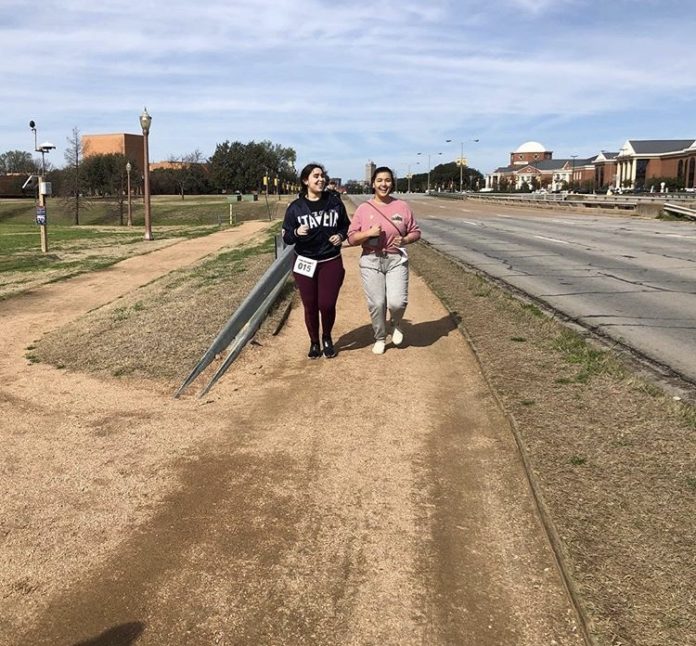
By Bridget Sjoberg | Staff Writer
Baylor’s American Sign Language (ASL) club hosted their first annual Striding for Signing 5k this weekend — a fundraiser for future events like Open Light Night at Common Grounds.
The 5k took place Saturday morning at the Baylor Science Building (BSB) fields at 9:30 a.m., and racers ran a course spanning part of the Bear and Cub trails.
A $15 fee was required to participate in the 5k and West junior Jenna Riemenschneider said that all proceeds from the event will be donated to ASL club’s Open Light Night.
“This is our first 5k so this is new territory for us, but we are very excited,” Riemenschneider said. “We’re raising money for our third annual Open Light Night in April, which is a sign language poetry night open to Baylor or MCC students, as well as the deaf and Waco communities at large. It will involve people telling stories, jokes and poems all in sign language, and takes place at Common Grounds. Since renting out the backyard isn’t cheap, we need a good fundraiser and decided to do something on a larger scale this year.”
Riemenschneider serves as ASL club’s president, joining and becoming involved in the club after taking an ASL class and interacting with a deaf professor.
“I started out at MCC and took ASL 1 on a whim. When I showed up, my professor was deaf, and knowing him and hearing about his experiences inspired me to take his deaf culture class. I learned a lot about the community and the obstacles they face, and soon decided to transfer to Baylor for their deaf education program,” Riemenschneider said. “I fell in love with the language and the idea of teaching in that language, so my goal is to teach deaf children in ASL.”
Riemenschneider said ASL club hosts events incorporating sign language and deaf culture, such as a Valentine’s Day party, movie nights, scavenger hunts and bowling. She said that anyone interested in learning more about sign language and deaf culture is encouraged to join regardless of major or experience.
“The ASL club tries to educate and promote deaf culture. It’s not common knowledge that sign language has its own culture and history that goes along with it,” Riemenschneider said. “We try to share this information while supporting the deaf community. You don’t need to know sign language to sign up for ASL club if you’re interested at all, but we try to share signs with those involved, as well as information about the deaf experience and the deaf world. We also have guest speakers come to talk about their experiences and incorporate ASL games. Our meetings are interpreted so someone voices whatever is being signed.”
Dallas junior Daniela Jimenez has been involved in ASL club since 2016, and currently serves as the club’s public relations chair where she is responsible for social media, making flyers for meetings and events, taking pictures and making videos.
“I originally joined the group because I knew I wanted to practice my signing more, and I also wanted to start getting involved with the deaf community here in Waco — the club was a good way for me to be able to do that with other people,” Jimenez said. “It can be intimidating as an ASL student to go to deaf events in the community, and the club was a good way for me to be able to do that and have the support of other members and officers there. The biggest impact for me has been being able to meet other people within the deaf community through the club because it has helped me so much, not just with improving my signing skills but also with understating the culture.”
In the future, Jimenez hopes to see the club grow and expand more, as well as be able to educate all students about sign language and deaf culture, regardless of their major.
“I hope to see the club grow and reach more and more people. I want it to spread and continue to reach students outside of the bubble of those who are taking ASL classes here at Baylor,” Jimenez said. “I would like to see more people with no signing experience, but who genuinely want to learn the language and about the culture and the community. I would also like to see the club change people’s understanding of what American Sign Language is and inform everyone that it’s a legitimate language with its own grammar and culture. This could eventually bring change to have ASL be accepted as a foreign language campus-wide, no matter what major you’re in.”





